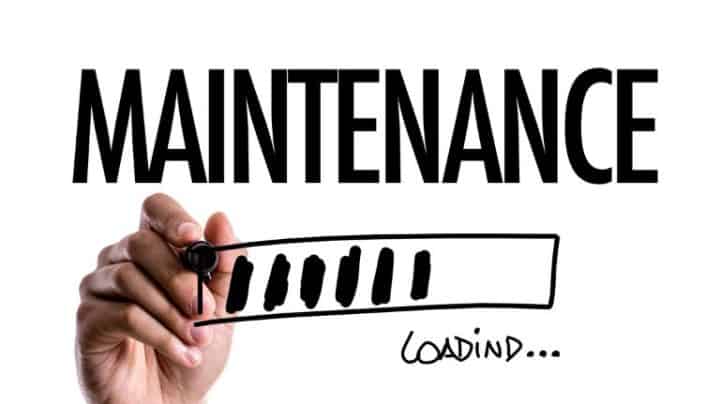As a website owner, you might have invested considerable time and effort in building a robust WordPress site. However, simply creating a website is not enough; regular maintenance is essential to ensure its smooth functioning and optimal performance.
In this article, we will delve into the importance of WordPress maintenance service, discuss best practices, highlight common mistakes to avoid, and provide insights on how to choose a reliable service provider.
What is WordPress Maintenance Service?
WordPress maintenance service refers to the process of regularly monitoring, managing and updating various aspects of a WordPress website to ensure its smooth functioning, security, performance, and user experience.
It involves tasks such as updating plugins and themes, backing up website data, optimizing performance, managing content, and ensuring website security.
Importance of WordPress Maintenance

WordPress is a popular content management system (CMS) that powers millions of websites worldwide. However, like any other software, WordPress requires regular updates and maintenance to stay secure, perform optimally, and provide an excellent user experience.
Neglecting maintenance can result in security breaches, slow website performance, and loss of data, leading to a negative impact on your website’s reputation and rankings.
Common Challenges of WordPress Maintenance
Despite its numerous benefits, WordPress maintenance can be challenging for website owners.
Some common challenges include staying updated with the latest WordPress versions, managing plugins and themes, optimizing performance, ensuring website security, managing content, and engaging users.
Overlooking these aspects can lead to a subpar website experience for your visitors and potential customers.
Why WordPress Maintenance is Essential
WordPress maintenance is essential for various reasons, including ensuring website security, performance, updates and backups, user experience, and search engine optimization (SEO).
Security
Website security is a top priority for any website owner. WordPress websites are susceptible to security threats such as hacking, malware, and data breaches.
Regular maintenance, including updating WordPress core, plugins, and themes to their latest versions, helps to patch security vulnerabilities and protect your website from potential threats.
It also involves implementing robust security measures such as strong passwords, SSL certificates, and regular security scans to detect and resolve any security issues.
Performance
Website performance plays a crucial role in providing a seamless user experience. A slow-loading website can drive away visitors and negatively impact your website’s search engine rankings.
Regular WordPress maintenance includes optimizing website performance by optimizing images, caching, database cleanup, and minimizing CSS and JavaScript files. This ensures that your website loads quickly, providing an excellent user experience for your visitors.
Updates and Backups

WordPress frequently releases updates for its core software, themes, and plugins to fix bugs, improve functionality, and enhance security.
Regular maintenance involves staying updated with the latest WordPress versions and promptly applying updates to keep your website secure and functioning optimally.
Additionally, regular backups of your website’s data are essential to protect against data loss due to unforeseen circumstances such as website crashes, hacking, or human error.
User Experience
Providing a seamless user experience is vital for retaining visitors and converting them into customers.
Regular WordPress maintenance ensures that all website features, forms, and functionalities are working correctly, enhancing the overall user experience.
It also involves monitoring website analytics, identifying user engagement patterns, and making necessary improvements to drive user engagement and satisfaction.
SEO
Search engine optimization (SEO) is crucial for improving your website’s visibility on search engine results pages (SERPs).
Regular WordPress maintenance involves optimizing your website’s content, meta tags, URLs, and images for search engines.
It also includes monitoring and fixing broken links, improving website speed, and implementing schema markup to enhance your website’s SEO performance.
Best Practices for WordPress Maintenance
To ensure effective WordPress maintenance, the following best practices are essential:
Regular Backups
Regularly backing up your website’s data is crucial to protect against data loss due to unforeseen circumstances.
Create regular backups of your website’s database, files, and media library, and store them securely offsite. This ensures that you can quickly restore your website to its previous state in case of any data loss.
Plugin and Theme Updates
WordPress plugins and themes play a significant role in website functionality and design. However, using outdated or incompatible plugins and themes can compromise website security and performance.
Regularly update all plugins and themes to their latest versions to ensure optimal performance and security.
Security Measures

Implementing robust security measures is critical for protecting your website from potential threats. Use strong and unique passwords for all user accounts, enable two-factor authentication, install security plugins, and regularly scan your website for malware and vulnerabilities.
Implementing a web application firewall (WAF) can also add an additional layer of security to your website.
Performance Optimization
Website performance is crucial for providing an excellent user experience. Regularly optimize your website for performance by compressing images, enabling caching, cleaning up your website’s database, and minimizing CSS and JavaScript files. This ensures that your website loads quickly and provides a seamless user experience.
Content Management
Effective content management is essential for maintaining a fresh and engaging website. Regularly update and optimize your website’s content, images, and meta tags for search engines. Keep your website’s content relevant, informative, and engaging to attract and retain visitors.
User Engagement
Engaging with your website visitors is crucial for building a loyal customer base. Regularly monitor website analytics to understand user behavior and engagement patterns. Implement strategies such as call-to-action buttons, contact forms, live chat support, and social media integration to encourage user engagement and interaction.
Common Mistakes to Avoid in WordPress Maintenance
Avoiding common mistakes in WordPress maintenance is essential to ensure the optimal performance of your website. Some common mistakes to avoid include:

Neglecting Updates
Failing to update WordPress core, themes, and plugins to their latest versions can leave your website vulnerable to security threats and compatibility issues.
Always stay updated with the latest releases and promptly apply updates to ensure optimal performance and security.
Poor Backup Practices
Neglecting to regularly back up your website’s data can result in irreversible data loss in case of unforeseen circumstances. Avoid this mistake by creating regular backups of your website’s database, files, and media library, and storing them securely offsite.
This ensures that you can quickly restore your website to its previous state in case of any data loss.
Ignoring Security Measures
Security is crucial for protecting your website from potential threats. Neglecting to implement robust security measures such as strong passwords, two-factor authentication, and security plugins can leave your website vulnerable to hacking and malware attacks.
Make sure to implement comprehensive security measures and regularly scan your website for vulnerabilities and malware.
Overlooking Performance Optimization
Website performance is directly related to user experience. Neglecting performance optimization measures such as image compression, caching, and database cleanup can result in slow-loading websites, leading to a poor user experience and lower search engine rankings.
Regularly optimize your website for performance to ensure fast loading times and a seamless user experience.
Poor Content Management
Content is the backbone of any website. Neglecting to regularly update and optimize your website’s content can result in stale and outdated information, which can drive away visitors.
Keep your website’s content fresh, relevant, and engaging by regularly updating and optimizing it for search engines and user engagement.
Lack of User Engagement Strategies
Engaging with your website visitors is crucial for building a loyal customer base. Neglecting to implement user engagement strategies such as call-to-action buttons, contact forms, live chat support, and social media integration can result in lower user engagement and interaction. Implement strategies to encourage user engagement and interaction on your website.
Conclusion
Regular WordPress maintenance is essential for ensuring the optimal performance, security, and user experience of your website.
By following best practices such as regular backups, plugin and theme updates, security measures, performance optimization, content management, and user engagement strategies, you can keep your WordPress website running smoothly and efficiently.